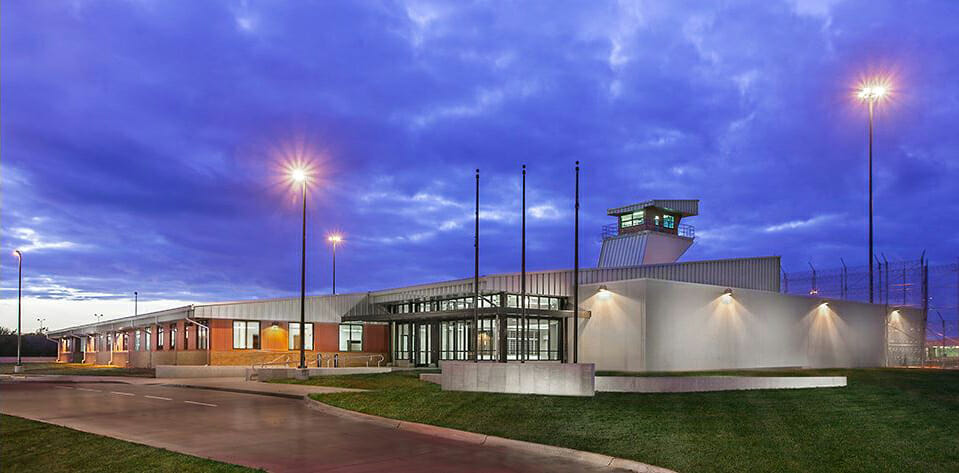
Criminal Rehabilitation and Justice in Iowa
Iowa manages all of the criminal justice institutions within its borders. The following sections outline key data points that summarize the scope of crime, incarceration, and rehabilitation in Iowa and what might be done to improve the Iowa criminal justice system.
Iowa Prison Population Data
How many people are incarcerated in Iowa? What are the biggest prisons in Iowa? What is the recidivism rate in Iowa? Answering these questions provides a clear insight into the state’s approach to crime and punishment.
According to the Bureau of Justice Statistics, Iowa has the 32nd highest incarceration rate in the U.S., ahead of New Mexico but behind Nebraska. Each year, at least 40,000 people cycle through local jails in Iowa, meaning that even though the state’s jail population is relatively low, tens of thousands of Iowa residents experience incarceration each year.1
Iowa has 96 jails in 99 counties. The jail population as of 2019 was 5,070. The state operates nine state prisons where it incarcerates 9,260 individuals. Iowa imprisons 293 for every 100,000 residents in the state, putting Iowa’s incarceration rate slightly lower than the national average.2
Iowa also has 20,256 individuals under probation and 7,035 under parole. Iowa’s prison facilities operate with a staff of 2,574 and an annual budget of $294,962,071, the seventh costliest item in the state’s budget. Iowa spends about $32,890 per prisoner per year.3
At the turn of the century, Iowa’s jail rate was about 100 per 100,000, which has not changed significantly in the last twenty years. However, the prison rate, where inmates serve longer sentences than in jail, has continued to increase since the turn of the century.

Image Courtesy of: doc.iowa.gov
The Iowa State Penitentiary, located in Southeast Iowa, is the state’s largest correctional facility, with the capacity to house up to 750 incarcerated individuals. Iowa does not contract with private prisons, and there are no federal prisons within Iowa’s borders.5
Crime Data and Recidivism in Iowa
According to the National Institute of Corrections, Iowa has a violent crime rate of 267 violent crimes per year for every 100,000 people in the state. The state’s property crime rate is 1,734 for every 100,000. According to the Bureau of Justice Assistance, Iowa reports about 8,000 violent crimes per year, 43 murders per year, 1,800 rapes, 900 robberies, and 6,000 aggravated assaults. The state also logs about 67,000 property-related crimes, including burglary, larceny, and motor vehicle theft. Iowa law enforcement officers perform about 101,000 arrests per year.5
Understanding statistical data on recidivism is key to understanding Iowa’s criminal justice system. According to a federal agency cited earlier, Iowa’s recidivism rate is 29%. However, according to the state’s data, recidivism is slightly higher, at about 32%. That means Iowa’s criminal justice system is not working for one-third of every Iowan who goes through it.6
Every state should continue to work to reduce recidivism. The goal should be 0% recidivism. However, in a report that brought good news, the mid-2000s in Iowa saw a slight drop in recidivism despite a 37% increase in prison releases during that same period. That report helped dispel the notion that releasing offenders would lead to more crime and re-offenses.
Criminal Reform in Iowa
Criminal rehabilitation in Iowa is defined as any program within a jail or prison that seeks to rehabilitate the offender so they do not go back to a life of crime after their release from prison. The criminal justice system in Iowa, coupled with special interest groups and nonprofits, has created some criminal rehabilitation programs in Iowa, such as:
- Essential Instruction, created to promote community wellness and public safety while preventing crime and victimization.
- Linn County Correctional Chaplaincy Ministry which was founded to provide spiritual support for offenders.
- Community Support Force, designed to rehabilitate offenders and reintegrate them back into the community once they are released from prison.
- The State of Iowa also implements prison rehabilitation modalities, such as behavioral health services, vocational training, work programs, and group sessions.
Alternatives to Incarceration in Iowa

There are some alternatives to prison in Iowa. For example, Iowa manages a drug court program designed to divert non-violent offenders from the criminal justice system in Iowa and send them into treatment and rehabilitative programming instead of jail cells. Currently, 47 specialty court programs in Iowa seek to keep people out of jail and prison and instead get at the root of what led to their unlawful behavior. Such specialty courts include:7
- Adult drug court
- Mental health courts
- Family treatment court
- Domestic violence court
- Veterans treatment court
- Juvenile delinquency court
- Female offenders juvenile court
- Adult driving under the influence court
Looking to the future, adding educational programs inside prisons in Iowa would be of benefit to the inmates, their families, and the state’s many communities. Rehabilitation programs inside prisons in Iowa are essential in producing real results for inmates. Educating inmates to get to the bottom of their poor life choices and helping them create life skills, coping strategies, and better, healthier, more responsible ways of tackling life will be key to fostering real change for such individuals.
Sources:
- BJS. “Prisoners in 2020 – Statistical Tables.” Bureau of Justice Statistics, 2020. bjs.ojp.gov
- NIC. “Iowa 2019.” National Institute of Corrections, 2019. nicic.gov
- Urban. “Project Iowa.” Urban Institute, 2022. urban.org
- IDC. “About Institutions.” Iowa Department of Corrections, 2022. doc.iowa.gov
- BJA. “Iowa.” Bureau of Justice Assistance, 2014. bjafactsheets.iir.com
- IDC. “Iowa Recidivism Report: Prison Return Rates.” Iowa Department of Corrections, 2011. legis.iowa.gov
- IDC. “Iowa Specialty Courts.” Iowa Department of Corrections, 2022. iowacourts.gov
Related Articles
Criminal Justice Reform Extends Rights to Felons Who Have Served Their Sentences
For decades, voter enfranchisement or disenfranchisement for incarcerated and formerly incarcerated individuals has been debated. An estimated 4.6 million Americans are barred from voting due...
Read more >>
Minnesota Just Became the 28th State to Abolish Life-Without-Parole Sentences for Children
In May of 2023, Minnesota became the latest state to abolish life-without-parole sentences for juvenile offenders, the 28th state to enact criminal justice reform laws...
Read more >>
Learning How to Overcome Addiction
"This course has brought an awareness to me that I never had before. Growing up in the 70's I had my share of parties &...
Read more >>




